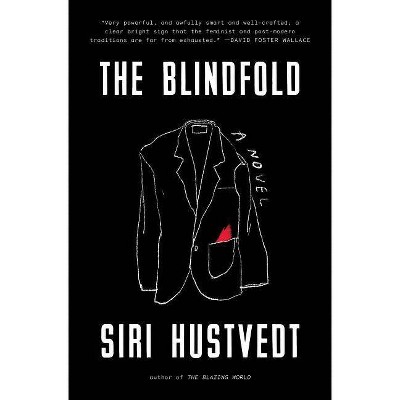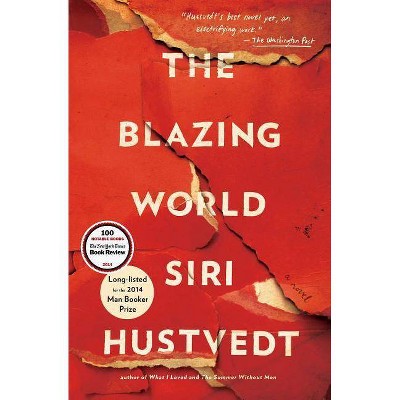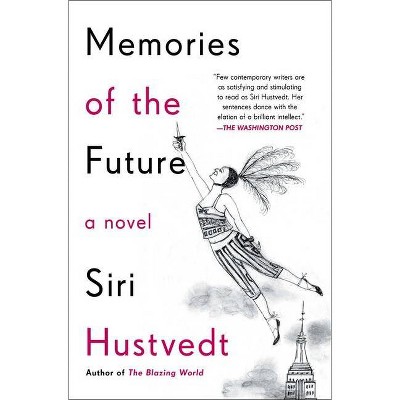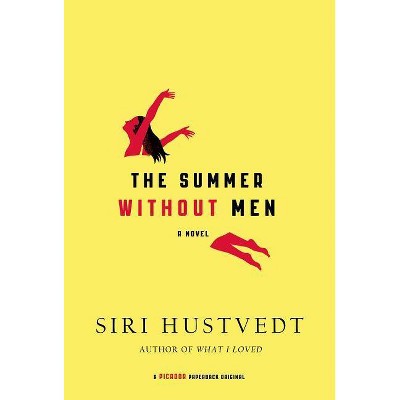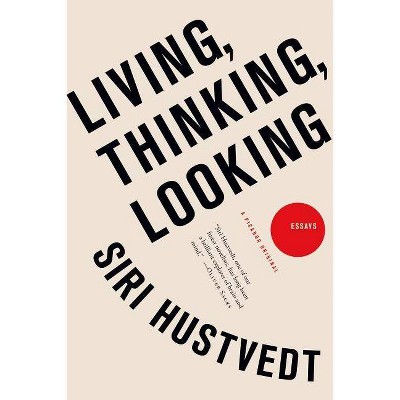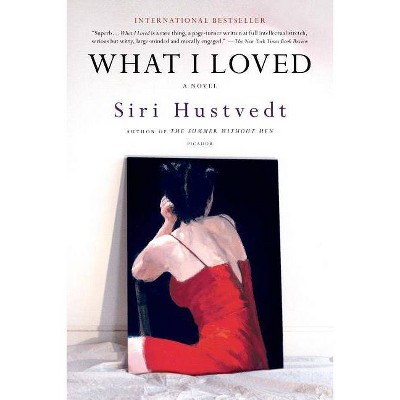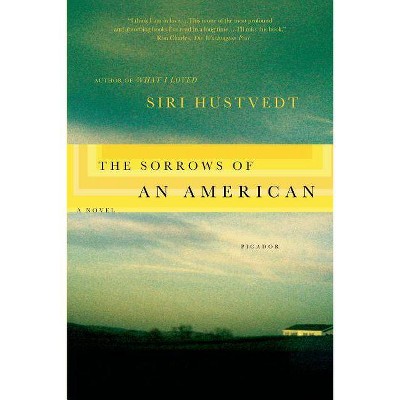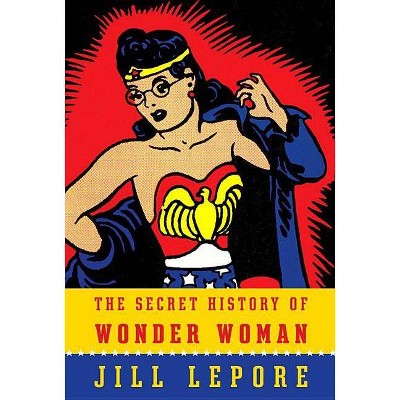The Shaking Woman or a History of My Nerves - by Siri Hustvedt (Paperback)
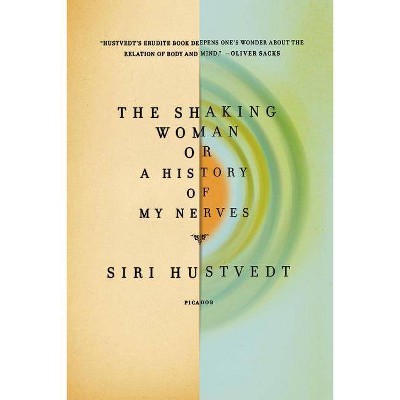
Similar Products
Products of same category from the store
AllProduct info
<p/><br></br><p><b> Book Synopsis </b></p></br></br><p><b>In this unique neurological memoir Siri Hustvedt attempts to solve her own mysterious condition</b> <p/>While speaking at a memorial event for her father in 2006, Siri Hustvedt suffered a violent seizure from the neck down. Despite her flapping arms and shaking legs, she continued to speak clearly and was able to finish her speech. It was as if she had suddenly become two people: a calm orator and a shuddering wreck. Then the seizures happened again and again. <p/><i>The Shaking Woman</i> tracks Hustvedt's search for a diagnosis, one that takes her inside the thought processes of several scientific disciplines, each one of which offers a distinct perspective on her paroxysms but no ready solution. In the process, she finds herself entangled in fundamental questions: What is the relationship between brain and mind? How do we remember? What is the self? <p/>During her investigations, Hustvedt joins a discussion group in which neurologists, psychiatrists, psychoanalysts, and brain scientists trade ideas to develop a new field: neuropsychoanalysis. She volunteers as a writing teacher for psychiatric in-patients at the Payne Whitney clinic in New York City and unearths precedents in medical history that illuminate the origins of and shifts in our theories about the mind-body problem. <p/>In <i>The Shaking Woman</i>, Hustvedt synthesizes her experience and research into a compelling mystery: Who is the shaking woman? In the end, the story she tells becomes, in the words of George Makari, author of<i>Revolution in Mind</i>, a brilliant illumination for us all.</p><p/><br></br><p><b> Review Quotes </b></p></br></br><br><p>"Siri Hustvedt, one of our finest novelists, has long been a brilliant explorer of brain and mind. But recently this investigation has taken a more personal turn: two years after her father's death, while speaking about him in public, she suddenly found herself seized by convulsions. Was this 'hysteria, ' a 'conversion reaction, ' or a 'coincidental' attack of epilepsy? <i>The Shaking Woman</i> is the story--provocative but often funny, encyclopedic but down to earth--of her attempt to answer this question. It brings together an extraordinary double story: that of Hustvedt's own odyssey of discovery, and of that point where brain and mind, neurology and psychiatry, come together in the realm of neuropsychoanalysis. The odyssey has not cured her, nor led to a conclusion--but Hustvedt's erudite book deepens one's wonder about the relation of body and mind." --<i>Oliver Sacks</i> <p/>"That Siri Hustvedt is a splendid writer is well known. The news is that life conspired to have her seek a working mastery of neuroscience. In her wonderful new book, part memoir, part mystery story, she explains this unexpected turn of events and offers the reader a wealth of valuable facts along with personal perspectives on the neuroscientific scene. Not surprisingly, the book is a pleasure to read." --<i>Antonio Damasio, University of Southern California</i> <p/>"Armed with her great gift for elucidation, the novelist and essayist Siri Hustvedt has omnivorously devoured and digested complex debates from neuroscience, psychiatry, philosophy and psychoanalysis and journeyed into the mind/body problem. In <i>The Shaking Woman</i>, her quest to understand her own mysterious troubles becomes a brilliant illumination for us all." --<i>George Makari, author of Revolution in Mind</i> <p/>"I was very struck by <i>The Shaking Woman</i>. Not only does it demonstrate nearly complete mastery (by a non-specialist) of the highly specialized field of neuropsychiatry, it also displays greater understanding of the underlying philosophical and historical issues that are at stake in this field than is displayed by most of my colleagues." --<i>Mark Solms, author of Brain and the Inner World</i> <p/>"This is a work of dizzying intensity. . .eloquent and vivid." --<i>Don DeLillo, author of Underworld</i> <p/>"As Hustvedt tries to remember pivotal medical and psychological moments in her life--she heard voices as a child, as did a couple of her sisters, had an early quaking fever, suffered from fierce migraines, tried various drugs--she segues smoothly into a wonderful section about the nature of memory.... Self-absorption can be grating in memoirs by lesser writers; in Hustvedt's capable hands, it opens a door to revelation." --<i>Kirkus Reviews</i> <p/>"Fascinating.... Hustvedt compellingly illustrates both the fragmented nature of her treatment, with the fields of psychiatry, neurology and psychoanalysis offering up conflicting views, and the difficulty of making a conclusive diagnosis. She asks fascinating questions about what it is that actually causes a physical ailment, and shows that our sense of the separation of mind and body has been generated in part by the medical establishment.... She leaves the reader thinking about his or her own bouts of illness in a thoroughly fresh way." --<i>Lorna Bradbury, The Daily Telegraph (UK)</i> <p/>"[<i>The Shaking Woman</i>] is a personal investigation, a philosophical inquiry, and a pithy, compacted consideration of how both psychiatry and neurology have evolved in the last two centuries.... Fastidious yet engaged, intimate yet detached, Hustvedt's exploration of mind and body embraces material that is interdisciplinary, complex and contentious. Her clean intelligence is equal to the challenge. Her frame of reference is wide and she does not condescend to past explorers.... Hustvedt is an ambitious, cerebral novelist, and the links between this book and her fiction are overt.... She brings both knowledge and an artist's insight to her discussion of memory, language, personal identity. Readers of Oliver Sacks will rate this book highly; as with Sacks, scientific knowledge and a powerful capacity for empathy are closely linked.... It is Hustvedt's gift to write with exemplary clarity of what is by necessity unclear." --<i>Hilary Mantel, Booker Prize-winning author of Wolf Hall (in The Guardian)</i> <p/>"This investigation will appeal to fans of Oliver Sacks and those interested in the peculiar twists and turns of our mysterious minds." --<i>Library Journal</i> <p/>"In our culture, telling the world that you, a woman, suffer from migraine or other mysterious and difficult-to-treat disorders is still tantamount to telling the world you are mad: unstable, unreliable, moaning, self-obsessed. So it's a brave creature who announces such a thing, let alone writes a book about it.... <i>The Shaking Woman</i> is the product of voracious reading and deep thought, and you register its author's sanity in every sentence." --<i>Rachel Cooke, The Observer (UK)</i> <p/>"[Hustvedt's] eloquent account flits between philosophy, science and anecdotes from the writing classes she runs for psychiatric patients, as well as her own experiences of those seizures, migraines, voices in her head and a heightened perceptual awareness. Hustvedt explores many grey areas--between mind, brain and body, sleep and wakefulness, consciousness and reality, truth and confabulation. In the process she shows how hard it is to study the mind objectively. How apt, then, that her account is stitched together by a delightfully subjective novelist's pen." --<i>New Scientist</i> <p/>"Hustvedt's deeply personal narrative reads at once like a detective novel, a medical history and a scientific critique. Through her own medical mystery, she keeps the reader engaged in the science by drawing connections to fascinating case stories from the medical literature." --<i>Frederik Joelving, Scientific American Mind</i> <p/>"Hustvedt's account of the diagnostic mess surrounding puzzling physical symptoms is very accessible. It's also extremely fair-minded, especially regarding psychoanalysis." --<i>Anouchka Grose, Financial Times</i> <p/>"Siri Hustvedt's subtle novels have long manifested a fascination with the mind-body duality.... Hustvedt's new book is a journey into this perplexing terrain, using the maps and signposts mind doctors and philosophers have provided both past and present.... Her own convulsing self may act as the spur to Hustvedt's investigations, but it is the lucidity she brings to these which mark the strength of this new book." --<i>Lisa Appignanesi, The Independent (UK)</i> <p/>"In this far-roaming neurological memoir, Hustvedt, a writer of psychologically complex fiction, chronicles her quest for a diagnosis after she was seized by powerful convulsions while speaking at a memorial for her father... With exceptional gifts for translating dense medical discourse into lucid and supple prose and for conducting fierce and revealing analysis, Hustvedt pinpoints the perceptions underlying contradictory theories pertaining to a host of neurological pathologies... Fizzing with uncommon facts, case studies, and profiles of migraine-afflicted and epileptic writers, Hustvedt's inquiry into some of the most baffling aspects of human life is graceful, intense, and curiously affirming." --<i>Donna Seaman, Booklist</i> <p/>"Compelling." --<i>Jackie McGlone, The Herald (Scotland)</i> <p/>"She has an amazing capacity to process large amounts of information on complex topics and to re-present it in a form that is understandable without seeming oversimplified." --<i>Molly McCloskey, The Irish Times</i> <p/>"[Siri Hustvedt] embarks on an exploration of the fuzzy area where trauma, emotion, and the body meet, and her peregrinations take readers from the history of hysteria to the grey areas of modern psychological diagnoses. Hustvedt knows her material--her lyrical, learned narrative is a joy to read." --<i>Seed (Books to Read Now)</i> <p/>"A harrowing and heartfelt memoir that is also a history of medicine, a critique of psychiatry and psychopharmacology, and a study of the curative powers of words, dreams and memories.... Hustvedt has read deeply and widely in the scientific literature as it relates to her various physical ailments, but she always returns to the first-person experience that informs her book.... Every observed and remembered detail of human experience has meaning if it can only be retrieved, scrutinized and understood. That's a tool of psychotherapy, of course, but it also describes exactly what writers do." --<i>Jonathan Kirsch, The Jewish Journal</i> <p/>"Illuminating the core question of her history, Siri Hustvedt, a fearless investigator and lucid storyteller, creates a mesmerizing picture." --<i>Robert Birnbaum, The Morning News</i> <p/>"Much less an illness memoir than an inquisition into the science of the brain. Hustvedt calls on everyone from Freud to Japanese neuropsychiatrist K. Hitomi to dig up answers. Hustvedt's inquiries are fascinating." --<i>Jonathan Messinger, Time Out Chicago</i> <p/>"This book is so good that you'll keep saying 'just two more pages' until you finally look up and realized you've gulped it all down in one sitting." --<i>Word Bookstore (Brooklyn, NY)</i> <p/>"As a writer, Hustvedt is more sensitive than most to the experience of narrating her condition, also exploring the very act of narration, of storytelling, as critical not only to psychoanalysis but also to illness and human experience in general. Considering that her exploration is all about points of connection and points of separateness, she very carefully crafts her memoir to connect all these various strands in a way that will spark readers' own thought processes, to consider how the way the body experiences the world might be only loosely related to the way the mind does so. <i>The Shaking Woman or a History of My Nerves </i>starts with a small, seemingly minor incident in one woman's life, but quickly broadens into a wide-ranging, intellectually rigorous examination of what it means to be whole--and human." --<i>BookReporter.com</i> <p/>"[A] fascinating tale of mind and brain and body... the author brings us into her world, her very head, and helps us to understand... Anyone who's interested in what makes our minds and bodies work will be fascinated, as I certainly was, by this fine book." --<i>Ann LaFarge, Hudson Valley News</i> <p/>"Hustvedt has written an immensely readable book. In <i>The Shaking Woman</i>, she dives into work done by neuroscientists, psychologists, psychoanalysts, philosophers, sociologists, poets and writers, and into her own experiences as a writing teacher of mentally disturbed patients, and as a patient herself in a psychiatric ward and in offices of doctors and therapists. A Ph.D. in literature, a researcher, a novelist, an essayist, a mother, a daughter, a wife: All the parts of herself play a role in her search." --<i>Jane Juska, San Francisco Chronicle</i> <p/>"There's no end to the memoirs of illness out there, but this one is different. There's a nakedness to it... This is a curious book. Curiouser and curiouser as Hustvedt reveals her symptoms... Something ghostly still walks in these pages. And you can see it in Hustvedt's novels as well. Something beautiful and ghostly and unexplained." --<i>Susan Salter Reynolds, Los Angeles Times</i> <p/>"Hustvedt, a deservedly acclaimed novelist, takes up a traumatic circumstance in her life and writes a cross between a memoir and a philosophical essay." --<i>Robert Pincus, San Diego Union-Tribune</i> <p/>"Hustvedt makes a stout case that brain disorders must be viewed not just as scientific phenomena but as human narratives, and she advances some useful correctives about the limits of neurobiological research." --<i>Polly Morrice, The New York Times Book Review</i></p><br><p/><br></br><p><b> About the Author </b></p></br></br><b>Siri Hustvedt</b> is the author of <i>The Shaking Woman or A History of My Nerves</i>, <i>The Sorrows of an American</i>, <i>What I Loved</i>, <i>The Blindfold</i>, and <i>The Enchantment of Lily Dahl</i>, as well as the collections of essays, <i>A Plea for Eros</i> and <i>Mysteries of the Rectangle</i>. She lives in Brooklyn with her husband, Paul Auster.
Price History
Cheapest price in the interval: 10.29 on October 22, 2021
Most expensive price in the interval: 10.29 on November 8, 2021
Price Archive shows prices from various stores, lets you see history and find the cheapest. There is no actual sale on the website. For all support, inquiry and suggestion messagescommunication@pricearchive.us
